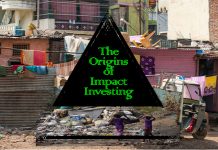Education is in the air. In the air waves, in our homes, on our computers, in public spaces and in our schools and universities. There are many ways to seek and find knowledge in the connected economy, and education institutions have to keep pace. By Priti Ambani
While students seek out institutions that will educate them for entry into the working world, institutions, in turn, have to ensure they are imparting the best possible knowledge to their charges. In today’s rapidly changing environment, ensuring institutions are up to speed on delivering current practices and future concepts requires educationists who are plugged into the real world — be it physically or virtually.
The old adage — those who cannot do, teach — is becoming less and less true in a world where business sense is inculcated at a young age due to the prevalance of smart devices.
As part of the upcoming Crowdsourcing Week, Ronald Tan, the Executive Director of the Singapore Institute of Management spoke about the evolution of tertiary education as it adapts to the new connected economy.
STORM: What competencies do new leaders need?
RONALD TAN: I think this is a very important topic in today’s dynamic ecosystem. To lead in this age, leadership is requiring an agile and flexible mindset. There are some key qualities I would like to discuss.
1. Leaders have to be constantly in touch with both the global and local scenes although the distinction is becoming increasingly blurred with the inter-connected cyber-space. With rapid developments powered by technology, it is important to be in the know about the latest trends and new developments, and not be left behind.
2. It is important for leaders to embrace networking. The world is closely connected and the next crucial opportunity for leaders may exist on the other side of the planet. Information is too easily available in today’s high-tech world. Consumers are also highly educated and discerning. Besides being able to establish a believable presence of their organisations on the online world, leaders have to be constantly connected with the ground to know what is being said about their organisations. Being under constant scrutiny, leaders and their businesses have to be above board and possess integrity.
3. Leaders also need to have greater engagement with employees and emphasise the professional development of their staff, either through in-house training or external courses. They have to actively collaborate with education providers to identify job-relevant skills for their workers. Leaders also need to look beyond paper qualifications to seek out traits in employees to determine the value they can bring to the organisations.
STORM: With career paths not being linear anymore, are the ability to take risks, disrupt and innovate prerequisite for success?
RONALD: People generally no longer stay in the same job or company for beyond five years at a stretch. With rapid job obsolescence on the one hand and many new opportunities being presented on different levels and platforms on the other, it becomes critical for people to learn new skills and new knowledge throughout much of their career lifespan in order to stay relevant and to be able to seize and leverage any new opportunity that may arise.
Companies like Google, Facebook and Apple, for example, demonstrate the need for one to possess an entrepreneurial spirit, take calculated risks, continually innovate and take self responsibility for lifelong learning. One must be prepared to fail fast, learn widely and deeply in order to succeed.
Besides job-relevant skills, employees need to have the right attitude and the willingness to learn, unlearn and re-learn while on the job. They need to be flexible about learning and look at it in a non-linear way. The study–work divide is increasingly blurred. There are now multi-models of learning, for instance, employees can make use of e-learning to learn on the go. Those who continually upgrade themselves will find that they enjoy more employment mobility.
Crowdsourcing Week takes place in Singapore from April 20-24. Visit crowdsourcingweek.com for more details.
Priti Ambani is the Global Media Director of Crowdsourcing Week.






















